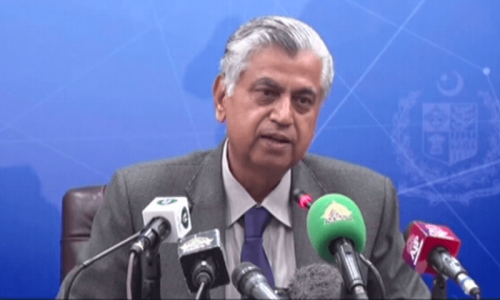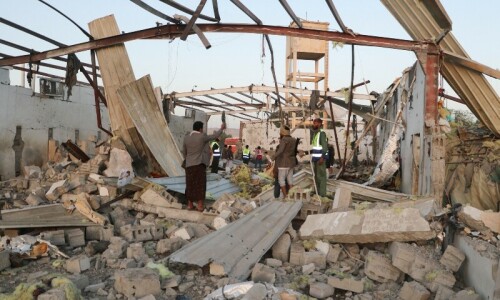The Human Rights Commission of Pakistan (HRCP) on Monday expressed concerns about the lack of a level playing field granted to certain political parties in the run-up to the upcoming February 8 general election.
The comments come days after the PTI alleged that it was not being given a level playing field for the general election. The party had alleged that its candidates were mishandled by authorities when they went to file their nomination papers. Further, the candidates successful in filing their nomination papers saw them being rejected during the scrutiny phase.
Addressing a press conference in Islamabad, HRCP co-chairperson Munizae Jahangir said that the current situation was not the usual atmosphere present ahead of the general elections, adding that this would weaken democracy.
“Our concern is that there will always remain a question mark on whichever government is formed as a result of this,” she said. Jahangir added that elections needed to be transparent in order to prevent any questions that may arise.
Responding to a question, she said the commission had not shied away from saying that the PTI was subjected to “systematic dismemberment”, adding that the body had mentioned the issue several times.
“I think we all know how the non-elected people have used their influence to monitor or direct politicians. We want the caretaker government and Election Commission of Pakistan (ECP) to assert themselves and fulfil the responsibilities of carrying out free and fair elections that have been entrusted to them,” she said.
Meanwhile, human rights activist and former senator Farhatullah Babar lamented that pre-poll rigging was already being carried out, pointing to how candidates were barred from filing their nomination papers and how their proposers were harassed.
“I think the biggest threat from this is that if elections happen, people will lose their trust in them and when the people no longer have trust in the polls, then there will be no trust in the government established as a result of the elections,” he said.
He warned that the current political uncertainty would further worsen and the state of human rights would further deteriorate.
A press release issued by the HRCP shortly after said the commission was “deeply concerned by the overall deterioration in human rights, which needs urgent attention as the new year unfolds”.
It said the “blatant manipulation of the electoral landscape in which one political party among others has been singled out for systematic dismemberment”.
“While HRCP does not condone violence in any form perpetrated by anyone, the state’s response has been disproportionate and unlawful,” it added.
“This has assumed a familiar pattern, including arrests of party workers and supporters, lack of transparency concerning the charges involved, crackdowns on party workers’ right to peaceful assembly, enforced disappearances, obvious signs of pressure on party leaders to resign or exit politics altogether and, most recently, the large-scale rejection of candidates’ nomination papers. Various other parties have also been subjected to similar tactics to varying degrees. At this point, there is little evidence to show that the upcoming elections will be free, fair or credible,” it added.
The commission also said that the rights of vulnerable groups had come under “renewed assault by state and non-state actors in the past year” and said that the expulsion of Afghan refugees had put many at risk.
It also decried the “state’s clampdown on dissent”, saying it had “further constricted civic spaces in the country at a time when people must be allowed to express their will freely ahead of a national election”.
Fafen urges ECP to publish scrutiny decisions of ROs
Separately, the Free and Fair Election Network (Fafen) urged the ECP to publish the decisions of ROs, regarding objections to the nomination of candidates and rejections of nomination papers, on its website, saying it would contribute towards a “more informed discourse and strengthen electoral transparency”.
It argued that the ECP invoke its authority to upload the decisions on its website, reasoning that the move would “help quell any disinformation and misinformation on the matter”.
“By sharing ROs’ decisions, the ECP will empower citizens to comprehend the reasons behind these decisions, and encourage informed opinions about the electoral process.
“This measure will not only reinforce the transparency of the electoral process but also serve as a safeguard to its credibility against the proliferation of misinformation and disinformation that often stems from incomplete information,” the group said in a press release.
Fafen said the ECP needed to look into whether the ROs had complied with the provisions of the Elections Act 2017 regarding the acception or rejection of nominations, and proceed against those officials who did not.
Additional reporting by Irfan Sadozai.















































